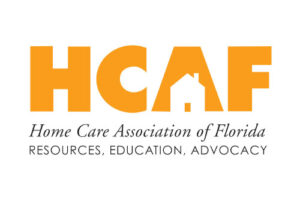Nowadays, most digital marketing professionals will urge their clients to utilize paid search advertising. This technique has been proven to give a leg up over competitors, while driving more qualified leads back to their clients’ site.
In healthcare, the overall goal of advertising is to acquire new patients, and this can be tough if you’re not reaching the right audiences looking for the right things. If you’re struggling with this, it may be an effect of either not using paid search advertising at all, or, if you are, you’re not exactly using it in a strategic enough way to be beneficial for you.
There’s several common mistakes businesses make when creating their paid search advertisements, especially in healthcare, but once you know, it shouldn’t be hard to avoid them.
What is paid search advertising?
If you’ve heard of this but aren’t exactly sure what it means, or maybe you just need a refresher, paid search advertising is essentially a strategy healthcare organizations use to get paid attention from search engines.
When discussing paid search, you will probably see PPC come up a lot, which stands for “pay-per-click.” You might’ve seen this at play whenever you search something in Google, and the first few results you see all say “Ad” in front of them. All of the businesses that show up in those results paid for themselves to be bumped to the top of the list, and it’s a very effective method of increasing engagement.

So, what are some of the common mistakes in healthcare paid search advertising?
Ineffective Keywords
Paid search is all about the right keywords. Search engines rely on keywords to give the user the most relevant and accurate information they’re looking for. The tricky part about keywords, however, is they change with the times, so you’re going to want to constantly update them to stay relevant. A common mistake made is never changing them, and then wondering why no one is engaging anymore. Choosing the best keywords are most likely to result in the most clicks and conversions
Bad Copy
This might go without saying, but bad copy makes everything else seem bad. Compelling, effective copy is an essential part of any paid search strategy. Due to the nature of paid search, though, you don’t have a lot of room/characters to convince the user to engage with your ad. You are given a headline and a few descriptive lines, and that’s it.
The headline, like most, should include an action that aligns with your keywords. The description lines, then, should entice the user with some kind of offer, and a call to action. Healthcare copywriting is unique in that it deals with intimate topics and isn’t necessarily trying to sell a product, so it should never come across as “aggressive.” It should come across as personal without being passive, and it should inspire them to click without feeling forceful.

Ignoring Trends
Another common mistake in healthcare paid search advertising is marketers thinking they know best so they don’t pay attention to what’s working for everyone else. You should always keep your eyes and ears tuned to the trends in not only advertising but the whole world, because while a lot of them might not make sense for your business purposes, some may inspire you to do something different.
Healthcare, especially, is always experiencing massive amounts of change, and some of these changes are starting to blend health with consumerization. One example that specifically shouldn’t be ignored is the user’s desire to connect with brands that sell products. As a healthcare organization that handles intimate parts of people’s lives, it’s especially vital to connect with patients so they feel they can trust you with their health.
Not Implementing Testing
Digital marketers can theorize all day long about what they think will work based on past experience, but no one truly knows how effective a paid search will be unless it is tested. Testing before running ads is something that can get swept under the rug, but it’s one of the most important parts of marketing because it gives insight on actual customer opinions, what works and what doesn’t. You don’t want to waste money on a paid search that doesn’t end up paying off because it doesn’t work.






Leave a Reply